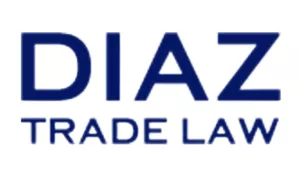Diaz Trade Law is enthusiastic to announce that our article "CTPAT Validation and Minimum Security Criteria" and CTPAT Checklist "CTPAT Minimum Security Criteria Changes" were published by Bloomberg Law! Below is the article reproduced with permission for your reading pleasure. We'd love to hear your feedback!
U.S. Customs and Border Protection has temporarily suspended new applications to join the Customs Trade Partnership Against Terrorism program, due to CBP's long awaited updates of the program's Minimum Security Criteria. Applications were suspended from Jan. 1, 2020 through June 1, 2020.
This article discusses background on CTPAT and participating member companies, importer specific requirements to join the program, a detailed account of all MSC changes, and how to assess company supply chain and best practices when preparing a CTPAT application, an annual update, or validation.
Background
CTPAT is voluntary trade partnership in which CBP and members of the trade community work together to secure and facilitate the movement of legitimate international trade. The program focuses on improving security throughout the supply chain, beginning at the point of origin through a point of distribution to the destination.
CTPAT member companies, or partners, agree to implement certain security procedures throughout their supply chains. To become a partner, the applicant needs to identify vulnerabilities in its supply chain and implement security procedures to safeguard their supply chains from terrorism and other illegal activities that threaten the security of the U.S. As a result, the program helps CBP achieve its dual mission of securing the nation's borders while facilitating legitimate trade and travel. In the course of applying, being certified, and thereafter validated, CTPAT applicants/partners are required to submit, via the CTPAT secured portal, business confidential information and sensitive details on how their company adheres to minimum security requirements to join the program.
Membership and Scale
CTPAT partners enjoy a variety of benefits, including taking an active role in working closer with the U.S. government in its war against terrorism. Partners are able to better identify their own security vulnerabilities and take corrective actions to mitigate risks. Some of the benefits include reduced number of CBP examinations, shorter wait times at the border, front of the line inspections, and assignment of a supply chain security specialist to the company.
Since its inception in 2001, CTPAT has grown to include 11,569 certified partners throughout the trade community in its program. There are 12 different business entities that are eligible for CTPAT membership, including importers, exporters, carriers, third-party logistics provides, and custom brokers. Below is the list of the business entities eligible for membership:
- Air carriers
- Consolidators
- Customs brokers
- Exporters
- Foreign manufacturers
- Highway carriers
- Importers
- Long-haul carriers in Mexico
- Marine port authority and terminal operators
- Rail carriers
- Sea carriers
- Third-party logistics providers
According to data from CTPAT, out of the 11,569 members in the CTPAT Security Program, 318 members are in the CTPAT Trade Compliance Program (which includes both CTPAT and the Importer Self-Assessment program). The total value of U.S. imports from CTPAT-certified partners amounts to 53.5%, which equates to about $1.3 trillion in value of U.S. imports from CTPAT members. The majority of CTPAT members are importers, comprising 35%, followed by foreign manufacturers, at 15%.
Click here and here to continue reading . . .
Originally published in Bloomberg Law
The content of this article is intended to provide a general guide to the subject matter. Specialist advice should be sought about your specific circumstances.


